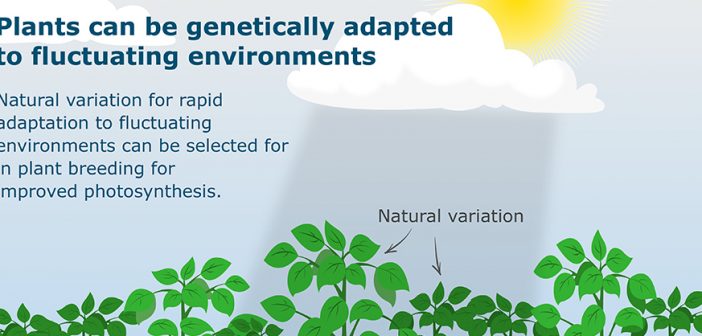Scientists from Wageningen University & Research (WUR) who have identified natural genetic variation for photosynthesis in plants say that unravelling the differences in DNA at a genetic level could help to breed crops which capture more CO2 and produce higher yields.
A team of scientists led by Mark Aarts and Jeremy Harbison used the model plant thale cress to spot various genes involved in the adaptation to changes in the amount of light to which plants are exposed.
The discovery shows that it is possible to improve photosynthesis based on natural genetic variation, something which some scientists have doubted until now. In the long term, breeding on improved photosynthesis could make crops produce more yield with the same amount of soil, water and nutrients.
While photosynthesis is an essential process it demands a high level of control: if a plant is suddenly exposed to too much light, it has to adapt to the new situation. Adaptation generally takes several days, but this new study shows that some plants can adapt quicker than others, and are thus able to adapt their photosynthesis system to their environment sooner.
“We measured the photosynthesis of all plants in the experiment at various times of day and via an identical method, and only applied a single stress factor: a one-off increase in the amount of light. This allowed us to precisely determine the genetic contribution to how plants adapted to the new stressful situation,” explained Mark Aarts.

Photo Caption: The work shows that plant genetics determine how they control photosynthesis.
Photo Credit: Wageningen University & Research
The post One step closer to crops with twice the yield appeared first on Hort News.
